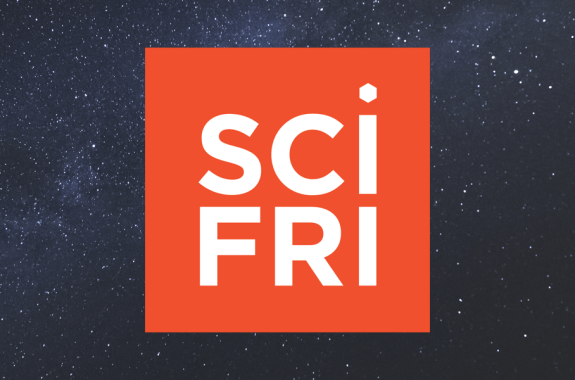May 2, 2025
An astronomer explores the cosmos and the limits of what science can test. Plus, how the mysterious properties of pasta—like how it bends, coils, and breaks—have been tested by physicists for decades. And, millions of years ago, iguanas somehow got from North America to Fiji. Scientists think they made the trip on a raft of fallen vegetation.
April 25, 2025
Understanding the psychological and neurological components of chronic pain may lead to better treatments. Plus, vocal researchers are learning how death metal singers safely produce extreme vocal distortions, in hopes of improving vocal health care. And, researchers isolated one kind of cone in the eye and aimed lasers at it to allow subjects to see a super vibrant teal shade they call “olo.”
April 18, 2025
Are traffic engineering decisions based on evidence-based research? Not as much as you might think. Plus, researchers captured the first confirmed video of a colossal squid swimming in its natural habitat. And, with brain-implanted devices, people with paralysis have been able to command computers to “move” virtual objects and speak for them.
April 11, 2025
We go inside the scientifically accurate ER world created for “The Pitt” with one of its medical consultants. Plus, new research suggests the artificial sweetener saccharin could kill antibiotic resistant bacteria. And, highlights from SciFri’s live show in Salt Lake City.
April 4, 2025
Food allergies are on the rise. For kids with less severe peanut allergies, one potential treatment could be found in the grocery aisle. Plus, what happens when AI moves beyond convincing chatbots and custom image generators to something that matches—or outperforms—humans? And, several companies are competing for NASA contracts to build commercial space stations.
March 28, 2025
Mental health information on social media can be both revelatory and misleading. How do clinicians and their patients make sense of it? Plus, when a Chicago-size iceberg broke off of Antarctica, scientists studied the life and geologic formations hidden below. And, a music therapist reveals the best kinds of music to soothe a baby.
March 21, 2025
In a new book, author John Green traces how tuberculosis has impacted culture, geography, and even fashion over the centuries. Plus, certain words are overrepresented in text written by AI language models. A study investigates why models trained on conventional writing develop such preferences. And, when dwarf lemurs hibernate, their chromosomes do something odd.
March 14, 2025
Fungal networks in the ground ferry crucial nutrients to plants. How do brainless organisms form complex supply chain networks? Plus, in this year’s baseball spring training, the new Automated Ball-Strike System is helping settle challenges to home plate pitch calls. And, the evolving science of how childhood trauma shapes adults.
March 7, 2025
A new book explores how prehistoric plants and dinosaurs co-evolved, and puts the spotlight on often overlooked flora. Plus, a team of researchers used drones to learn new things about narwhal behavior. And, a total lunar eclipse will be visible across most of North and South America in the early morning hours of March 14.
February 28, 2025
A federal DEI ban is already prompting changes across science agencies. How will it affect medical research? A journalist traveled to five continents to learn about the afterlife of our trash, and why most “recyclable” plastic actually isn’t. And, the ocean liner SS United States will become an artificial reef in Florida. How do artificial reefs work?
